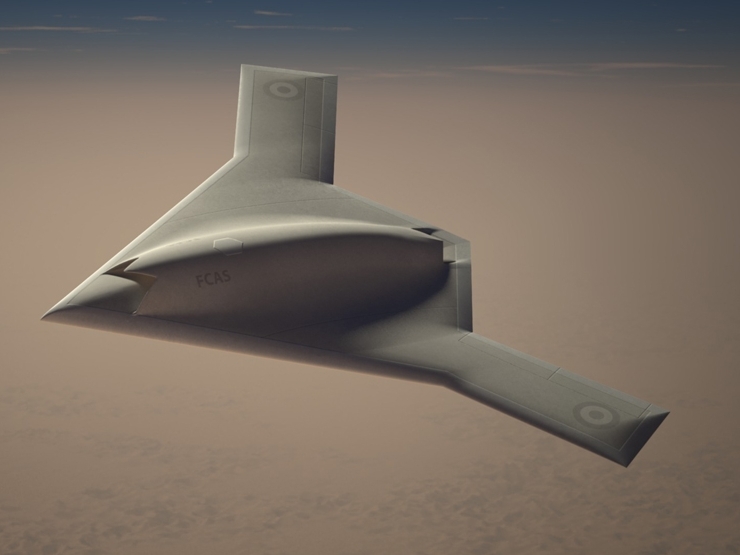Cross-Channel plans to jointly develop an unmanned combat aircraft, known as the Future Combat Air System (FCAS), have taken a major step forward with the announcement that Paris and London are allocating £1.54bn (€2bn) to build a prototype aircraft. A technical review is scheduled for 2020.
The announcement — coming in the midst of a heated debate about the UK’s future place in the EU — marks the next stage in the programme following a €150m joint feasibility study initiated in 2014. The two-year feasibility phase was formally launched on 5th November 2014, with the award of contracts to the six companies involved. Dassault and BAE Systems were designated joint prime contractors, focusing on the airframe and systems integration. Thales and Selex ES were tasked with onboard sensors and communication systems, while Rolls-Royce and Safran started work on the propulsion system.
The French DGA defence procurement agency and Britain’s Defence Equipment and Support (DE&S) unit have been jointly supervising the project.
FCAS is the follow-on to two experimental programmes : Neuron in France and Taranis in the UK. These two combat drone demonstrators have given the two airframers initial experience in the aerodynamic and stealth characteristics of this type of platform. Neuron was initially intended to provide an alternative to the exclusive reliance on manned combat aircraft. Under the DGA’s overall direction, the programme brought together a Dassault-led European team comprising Thales, Saab, HAI, EADS-Casa, Alenia and Ruag.

